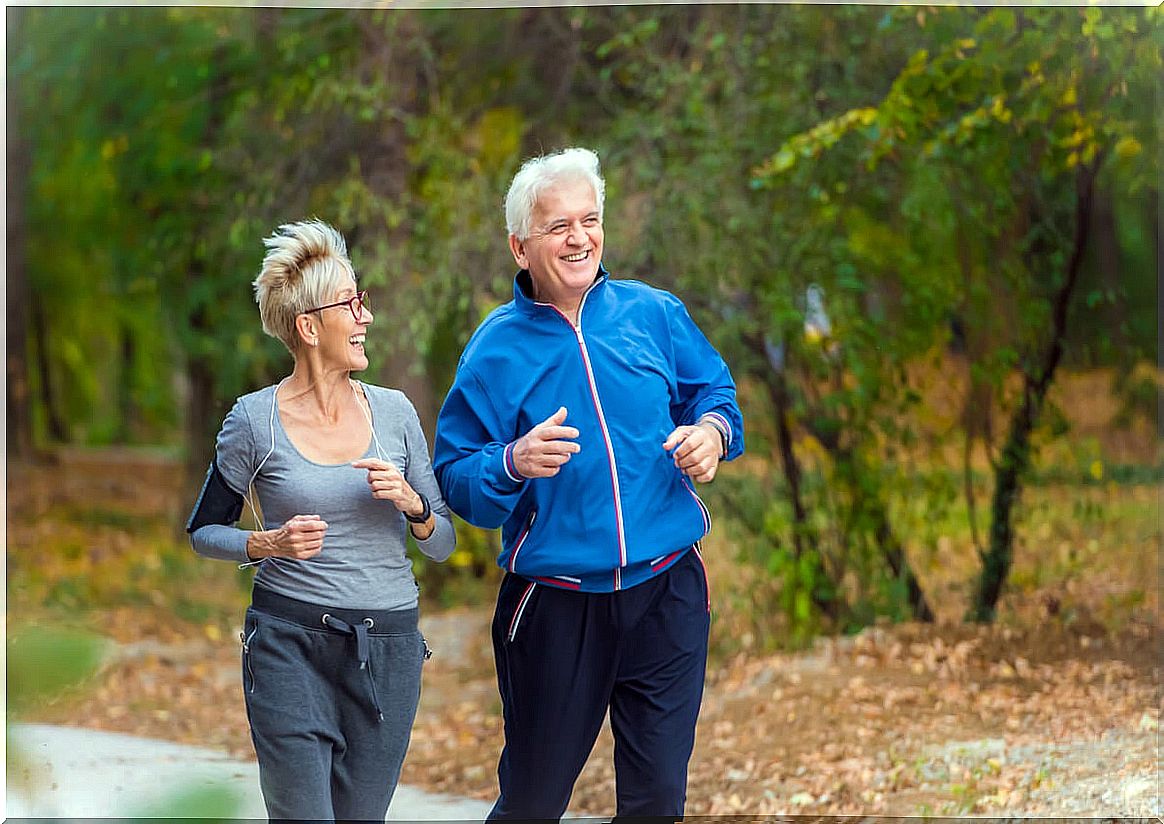Aging Alters Our Circadian Rhythms

It is the law of life. Aging alters our circadian rhythms and this often results in a bad night’s rest, a drop in energy and progressive metabolic disturbances. Now, we know that these factors will arrive at some point, however, is it inevitable? Can’t we do anything to slow it down?
The good news is that even though our endogenous clock never stops, we can mitigate or reduce its impact. The important thing is to keep this reality in mind. Circadian rhythms will change as we get older and just knowing this gives us valuable opportunities to improve our lifestyle habits.
In all mammals, it is the suprachiasmatic nucleus that acts as the central pacemaker that regulates the cycles and processes that promote homeostasis. Therefore, knowing what guidelines we should follow to take care of this brain region can be of great help.

Aging alters our circadian rhythms: characteristics and associated processes
Reaching the fourth age in the best way is a goal that we can all achieve. Society is going to be increasingly aged and this is a challenge for the future that we must address in the present. Older adults deserve to enjoy the fall of their lives in the most appropriate way. Achieving this necessarily involves understanding how we age.
Now science knows a little more about how circadian rhythms change with age. According to a study, the circadian system directly influences aging itself and longevity.
That is, if we were able to improve some aspects of our lifestyle, we would delay these natural (and unavoidable) processes a little more. Thus, something we know is that as we get older, the earliest effects that this circadian alteration leaves are the difficulty to regulate temperature and the reduction of hormones.
Not only does the passage of time alter circadian rhythms, so does stress
We know that aging alters our circadian rhythms, however, there is another equally important variable: stress. To understand this we must detail a series of aspects. First of all, the human being lives and regulates all its metabolic processes based on light. This is something that we often overlook.
This light is what stimulates the true director of circadian processes: the suprachiasmatic nucleus. This region is located in the hypothalamus and, upon receiving light signals from the retinas, sets in motion a series of processes. Regulates and monitors sleep, digestion, the secretion of hormones or their repair, the elimination of toxic elements, etc.
Now, when a person accumulates stress for years, there is a clear effect: hormones such as cortisol, associated with stress processes, alter circadian rhythms. In other words, it is true that simple aging can affect the function of the suprachiasmatic nucleus. However, the impact will be greater if we lead a lifestyle marked by stress and anxiety.
Aging disrupts our circadian rhythms and the hippocampus
Loss of memory, failures in mental agility, reasoning, spatial orientation … It is true that aging alters our circadian rhythms, but this variable also leads to cognitive deterioration. Research papers, such as those carried out at the University of Ottawa, highlight this factor.
It has been seen in the laboratory setting that the alteration of circadian rhythms affects energy metabolism, neurotransmission and synaptic plasticity of the hippocampus. This translates into cognitive problems such as those mentioned above. Likewise, there is also an increased risk of suffering from neurodegenerative diseases such as Alzheimer’s.

How to improve your circadian rhythm
Prevent to live better. Take care of our daily habits to improve the aging process. How can we do it?
If aging alters our circadian rhythms, how can we slow down this effect? There are many strategies that we can carry out that will allow us to achieve this goal. These are some examples:
- Start managing, regulating and reducing your stress levels. Make the necessary changes so that this psychological condition has a minimal impact on your life.
- Do aerobic sports. Just go for a walk or run for half an hour every day.
- Try to sleep between 7 and 8 hours. It is important that you go to bed and get up at the same time.
- It is important that you sleep in complete darkness.
- It is also advisable to reduce exposure to light from electronic devices. The reason? They alter the production of melatonin. Something simple like turning off the mobile and the computer two hours before going to bed is very healthy.
- Take short naps, between 20 minutes and half an hour. Never more.
- Sunbathe for about 15 minutes each day. Use protection, but don’t hesitate to enjoy those sun baths that are so necessary to obtain good levels of vitamin D.
- Maintain a balanced diet and as natural as possible.
Let’s not forget that attending to our circadian rhythms implies living in harmony with the Earth and its cycles. Adjusting to its times of light and darkness would be the most ideal, as long as our obligations allow it.









